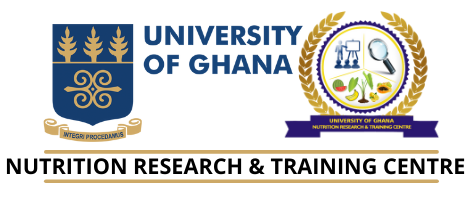STUDENT RESEARCH
Dietary intakes and nutritional status of children attending schools with or without a School Feeding Programme in Upper Manya-Krobo District of Ghana
Summary: The study aimed to assess dietary intakes and nutritional status of children 4-8 years of age attending schools with or without a school feeding programme (SFP) in the Upper Manya Krobo district of Ghana, as well as stakeholders’ perceptions about SFP. A total of 191 schoolchildren (4-8 years) comprising 62, 65 and 64 from schools with a privately sponsored SFP (PSFP), Government of Ghana-sponsored SFP (GSFP) and No SFP (NSFP), respectively were included in a cross sectional study. Information on socio-demographic characteristics was obtained from the caregivers and eating practices were obtained from the schoolchildren assisted by their caregivers using semi-structured questionnaire. A single 24-hour dietary recall and 7-day food frequency questionnaire were used to collect data on children’s dietary intakes. Weight and height of the children were also taken. Academic records and school attendance data were extracted from previous school term assessment records and school registers, respectively. To obtain stakeholder perceptions, focus group meetings were conducted for the caregivers and in-depth interviews for school staff members.
Analysis of covariance (ANCOVA) and Chi-square test were used for comparison between the groups for continuous outcome and categorical variables, respectively. Thematic analysis was used to analyse the qualitative data. The mean dietary diversity scores of the children was significantly higher in both PSFP and NSFP groups than GSFP group (p < 0.001). Less than half of the study children (4-8 years) met Estimated Average Requirement for energy (41.4%), vitamin B12 (35.6%), folate (33%), vitamin B6 (7.9%) and calcium (1.6%). Stunting, thinness, and underweight were quite low among the study children (4.2%, 4.7%, and 4.7%, respectively). There were no differences between the groups for standardized mathematics and English test scores as well as school attendance (p=0.84; p=0.73 and p=0.85, respectively), although the stakeholders perceived that the meals served to school children improve academic performance, school attendance, and retention. Challenges of school feeding programmes include inadequate kitchen facilities, inadequate funds, and untimely release of funds. Thus, school meals served under current school feeding programmes in the district were inadequate to meet their nutritional needs.
Felix K. Kyereh | Masters, University of Ghana, Legon
